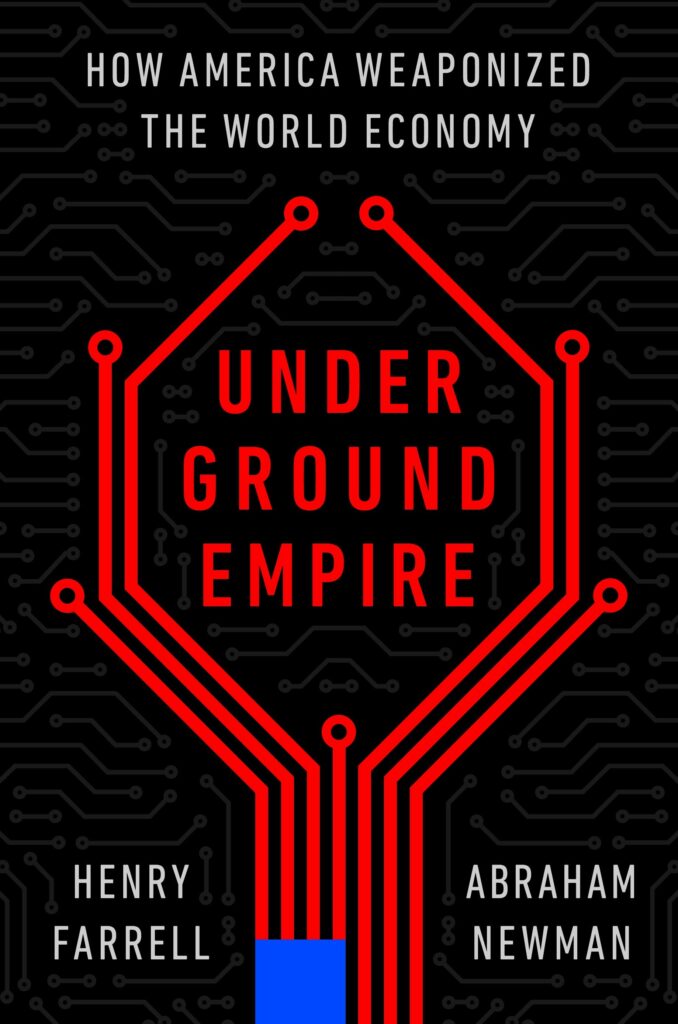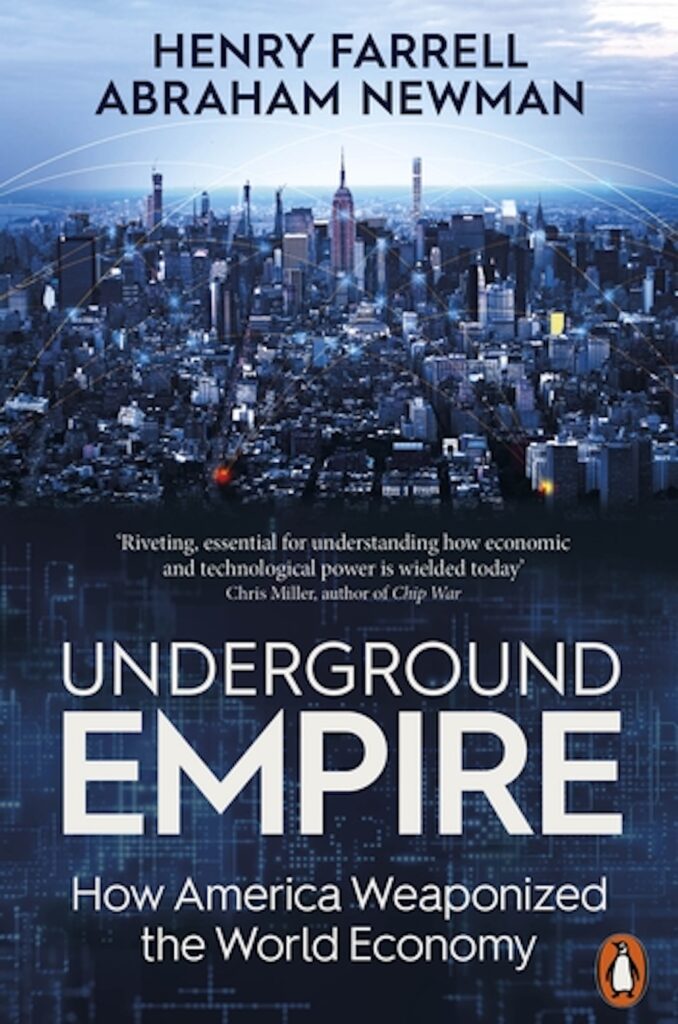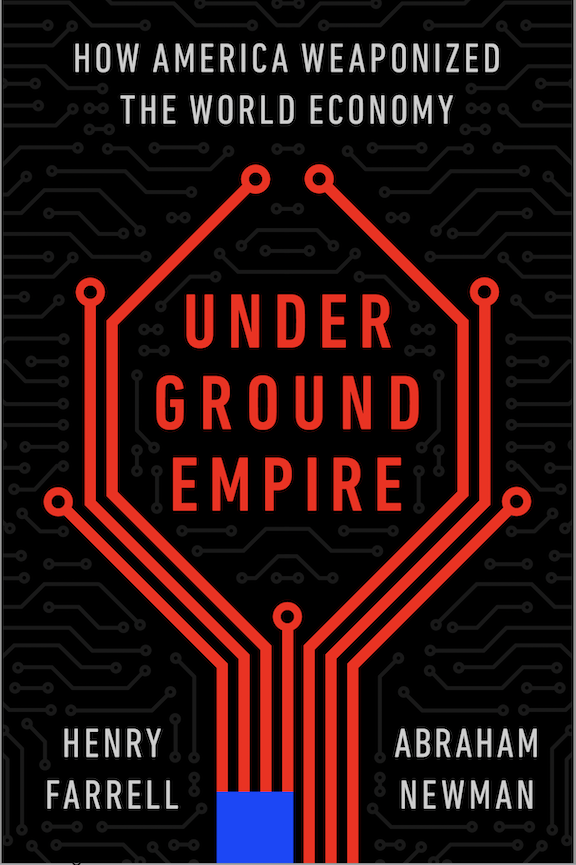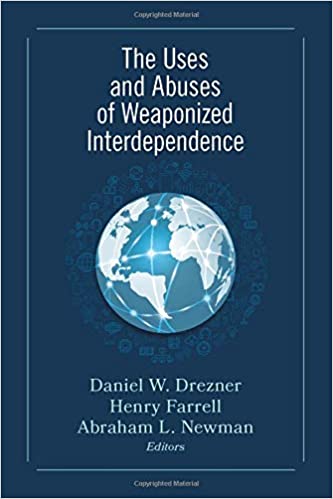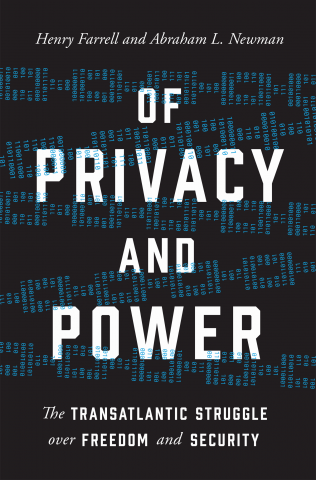Underground Empire
How America Weaponized the World Economy
by Henry Farrell & Abraham Newman
On sale now (Amazon, Bookshop.org), published by Henry Holt in the US and Allen Lane/Penguin in the UK. Awarded the Council of Foreign Relations Arthur Ross Book Award Bronze Medal. Editors’ Pick, Foreign Affairs Best Books of 2024. See reviews in Foreign Affairs, Washington Post, Times Literary Supplement, National Review, Washington Monthly, Financial Times, Los Angeles Review of Books, Irish Times, Pluralistic, Publisher’s Weekly, and Chatham House. Translated into Chinese, Finnish, French, Japanese, Korean, and (coming soon) Spanish and Vietnamese.
Featured Work
The Most Important Foreign Policy Speech in Years
How Civil Society Can Beat Trumpism: NYT
The Weaponized World Economy: Cover story for Foreign Affairs
The Enshittification of American Power

Henry Farrell is the SNF Agora Professor of International Affairs at Johns Hopkins School of Advanced International Studies, and the 2019 recipient of the Friedrich Schiedel Prize for Politics and Technology.
He is a member of the Council on Foreign Relations, and a Council Member of the European Council on Foreign Relations, as well as an affiliated scholar at Stanford University Law School’s Center for the Internet and Society, and an international correspondent for Stato e Mercato.
If you want Henry to do something, please read this first.
